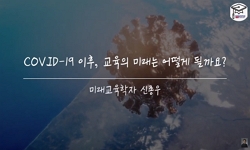This study aimed to analyze the changes in purchased food (eating-out and delivery food) expenditures by single households before and after COVID-19 and determine the factors that cause the expenditure changes by applying regression models. Data from ...
http://chineseinput.net/에서 pinyin(병음)방식으로 중국어를 변환할 수 있습니다.
변환된 중국어를 복사하여 사용하시면 됩니다.
- 中文 을 입력하시려면 zhongwen을 입력하시고 space를누르시면됩니다.
- 北京 을 입력하시려면 beijing을 입력하시고 space를 누르시면 됩니다.

코로나19 발생전ㆍ후 1인가구의 매식비용 변화 요인분석 = An Impact Analysis on the Expenditures of Purchased Food in Single Households since COVID-19
한글로보기https://www.riss.kr/link?id=A108050722
- 저자
- 발행기관
- 학술지명
- 권호사항
-
발행연도
2022
-
작성언어
Korean
- 주제어
-
등재정보
KCI등재
-
자료형태
학술저널
- 발행기관 URL
-
수록면
123-138(16쪽)
-
KCI 피인용횟수
0
- 제공처
-
0
상세조회 -
0
다운로드
부가정보
다국어 초록 (Multilingual Abstract)
This study aimed to analyze the changes in purchased food (eating-out and delivery food) expenditures by single households before and after COVID-19 and determine the factors that cause the expenditure changes by applying regression models. Data from the ‘Food Consumption Behavior Survey’ in 2019 and 2020 by Korea Rural Economic Institute (KREI) were used. Out of 616 single households, 8.8% did not consume any eating-out and delivery food during 2019∼2020. The proportion of eating out costs out of total purchased food expenses in single households was about 70% in 2019 and 2020. Only 18.1% of all single households had less eating-out costs but more delivery food costs after COVID-19, whereas 48.4% decreased both eating-out and delivery food, and only 11.7% increased both eating-out and delivery food since COVID-19. Single households with the highest purchased food in 2019 reversed into the lowest in 2020 by reducing eating-out and delivery costs. In contrast, single households with the lowest purchased food in 2019 became the highest purchased food costs. As a result of regression analysis, the main trend of changes in the purchased food costs in single households was that low-income, elderly, and rural single households had a worse diet after the outbreak of COVID-19. In addition, the higher the consumer’s knowledge-based capacity in single households, the more actively reducedthe purchased food was, while the higher the consumer’s income-based capacity, the more significantly increased the purchase food costs in the midst of COVID-19 pandemic. In conclusion, COVID-19 has deepened the polarization of single households by age, region, and income level.
동일학술지(권/호) 다른 논문
-
- 한국지역사회생활과학회
- 박연진
- 2022
- KCI등재
-
20-30대 성인의 공복혈당장애와 비만도, 신체활동, 음료 및 주류 섭취 빈도와의 관련성 연구 -제6기 국민건강영양조사(2013-2015년도) 자료를 이용하여-
- 한국지역사회생활과학회
- 이유진
- 2022
- KCI등재
-
- 한국지역사회생활과학회
- 임태진
- 2022
- KCI등재
-
부모자녀관계에서의 의존성 및 양가감정과 심리적 안녕감간의 관계 : 한국과 캐나다거주 한인 부모자녀관계 비교를 중심으로
- 한국지역사회생활과학회
- 안정신
- 2022
- KCI등재
분석정보
인용정보 인용지수 설명보기
학술지 이력
| 연월일 | 이력구분 | 이력상세 | 등재구분 |
|---|---|---|---|
| 2026 | 평가예정 | 재인증평가 신청대상 (재인증) | |
| 2020-01-01 | 평가 | 등재학술지 유지 (재인증) |  |
| 2017-01-01 | 평가 | 등재학술지 유지 (계속평가) |  |
| 2013-01-01 | 평가 | 등재 1차 FAIL (등재유지) |  |
| 2010-01-01 | 평가 | 등재학술지 유지 (등재유지) |  |
| 2008-01-01 | 평가 | 등재학술지 유지 (등재유지) |  |
| 2005-05-12 | 학술지명변경 | 외국어명 : 미등록 -> The Korean Society of Community Living Science |  |
| 2005-01-01 | 평가 | 등재학술지 선정 (등재후보2차) |  |
| 2004-01-01 | 평가 | 등재후보 1차 PASS (등재후보1차) |  |
| 2003-01-01 | 평가 | 등재후보학술지 선정 (신규평가) |  |
학술지 인용정보
| 기준연도 | WOS-KCI 통합IF(2년) | KCIF(2년) | KCIF(3년) |
|---|---|---|---|
| 2016 | 0.52 | 0.52 | 0.61 |
| KCIF(4년) | KCIF(5년) | 중심성지수(3년) | 즉시성지수 |
| 0.67 | 0.7 | 0.853 | 0.07 |





 DBpia
DBpia



